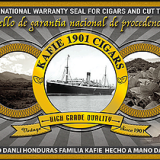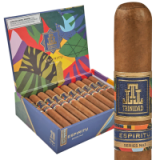When it comes to preserving cigars, the quality of your storage can make a big difference. Cigars are made up of a delicate blend of tobacco leaves and they require proper handling in order to keep them in good condition. If not properly cared for, cigars may suffer from cracking or other damage that affects their flavor and burn rate. Fortunately, there are several effective ways to prevent cigar cracking and ensure that you get the most out of your favorite smokes.
Contents:
First, it’s important to understand why cigars crack or split. Most often, this happens when the cigar is exposed to sudden changes in temperature or humidity levels. The wrapper leaf is particularly susceptible to these fluctuations since it’s thinner than other parts of the cigar and has less elasticity. As a result, any extreme change in environmental conditions can cause it to crack or split open easily.
In order to avoid this problem, it’s best practice to store your cigars at an optimal level of humidity (between 68% and 72%) and temperature (70°F-74°F). This ensures that the moisture content remains consistent throughout all components of the cigar which helps prevent cracking or splitting due to environmental factors such as air pressure changes during transportation or dramatic shifts in temperature due.
Understanding Cigar Cracking
Cigar cracking is a common issue amongst cigar smokers, and while it can be quite frustrating, understanding the root cause of it is the first step in preventing this from happening. Cigar cracking occurs when the outer wrapper leaf becomes brittle due to age or environmental conditions. In some cases, improper storage may also contribute to cigar cracking. It’s important to note that cigars are composed of several different layers of tobacco leaves, each with their own characteristics and moisture content.
Humidity levels play a huge role in cigar cracking; if humidity is too low or too high, then the outer wrapper will become dry and brittle which causes cracks in its surface. Too much exposure to direct sunlight or heat can also have a similar effect on cigars; both will increase the drying process leading to crack formation. Handling your cigars roughly by pinching them or rolling them between your fingers can lead to cracks as well because this increases pressure on the wrapper leaf.
To prevent cigar cracking you should ensure proper storage conditions for your cigars at all times – they should be kept away from any extreme temperatures and humidity levels as well as direct sunlight exposure. Taking extra care when handling your cigars by avoiding squeezing them tightly can also help reduce chances of crack formation significantly over time.
The Causes of Cigar Cracking
Cigar cracking is a common issue for cigar enthusiasts, but it can be prevented if the right steps are taken. To ensure that cigars remain intact, it is important to understand why they crack in the first place. Generally speaking, there are two main causes of cigar cracking – improper storage and changes in temperature.
The way cigars are stored plays an integral role in preventing them from cracking. Humidity should be kept at a consistent level; too much moisture can cause the wrapper to swell while not enough will cause it to dry out and break apart easily. Cigars must also be stored away from direct sunlight or bright lights as this could lead to uneven heating which may result in cracks appearing on the surface of the wrapper leaf. Storing cigars in airtight containers can help maintain their freshness and prevent any excess humidity from entering into the container and ruining them.
Changes in temperature can also have an adverse effect on cigars causing them to become brittle over time due to fluctuations between warm and cold temperatures. Exposing cigars to extreme temperatures such as leaving them outside during winter or putting them near hot surfaces like radiators or stoves can create dramatic shifts which weaken wrappers leading to cracks forming along its surface when handled with carelessness. Therefore, ensuring that your humidor is placed somewhere safe where temperature levels remain constant throughout all seasons is key for preserving your precious collection of smokes.
Humidity and Temperature Control
When it comes to preserving cigars, humidity and temperature control are two of the most important factors. Cigars that are stored in a place with too much moisture can become moldy or even rot, while cigars kept in an environment with too little humidity will dry out and crack. To ensure optimal preservation, cigar enthusiasts must take steps to maintain consistent levels of both humidity and temperature.
The ideal relative humidity (RH) for storing cigars is 70%, though anything between 65-72% is acceptable. In addition to providing a stable RH level, it’s also important to monitor the room’s temperature since extreme fluctuations can damage cigars. The optimal storage range is around 68-70°F (20-21°C), but temperatures as low as 64°F (18°C) or as high as 74°F (23°C) should still be adequate.
Maintaining proper levels of humidity and temperature requires more than just putting your cigars on display–it takes time and effort. A hygrometer is essential for tracking conditions inside the humidor, while a thermometer helps you keep tabs on the room’s ambient temperature. If necessary, you may need to add additional items such as a humidifier or dehumidifier depending on the climate of your location. With regular monitoring and maintenance however, you’ll be able to enjoy perfectly preserved cigars for years to come!
Storing the Right Way
When it comes to preserving cigars, the most important factor is proper storage. If not stored correctly, a cigar can easily become cracked or dried out and unable to be smoked. To ensure that your cigars remain in good condition for as long as possible, it is important to learn the right way to store them.
The ideal environment for storing cigars should include a temperature of 68-72 degrees Fahrenheit with an RH (relative humidity) level between 68% and 72%. This helps keep the moisture levels within the cigar consistent and prevents any cracking due to dryness. It is also beneficial to keep your cigars away from direct sunlight or other sources of heat, as this could cause damage over time. You want to make sure they are kept in a humidor that allows air circulation while still keeping enough humidity inside.
It is essential that you check on your cigar collection regularly and rotate them if necessary. This will help keep all sides exposed evenly so there are no weak spots where cracks may occur more easily than others. You should also avoid stacking too many boxes together at once as this could lead to crushing or pressure points being created which again can result in cracking or even warping of the wrapper leaf itself. With these simple tips in mind, you can rest assured knowing that your cigars are safe from harm when properly stored.
Identifying Unfavorable Conditions
Identifying unfavorable conditions for cigars is a critical step in preventing cigar cracking. While certain environmental factors are often cited as leading causes of the issue, such as sudden shifts in temperature or humidity, there may be other underlying conditions that can cause problems with your smokes. It is important to take the time to understand what might be causing cracks before attempting to fix them.
First and foremost, you should assess any storage containers you are using for your cigars. Many cigar smokers store their sticks in desktop humidors made from materials like wood or plastic which provide an airtight environment for the cigars. However, if these materials are not properly sealed or cared for over time they can begin to let too much oxygen into the humidor, drying out the cigars inside and making them more prone to cracking when exposed to external elements. Inspecting all seals on both new and old humidors can help you identify any potential issues with your storage system early on so you can address it quickly.
Another factor that should be monitored closely is how frequently you open up your humidor or carry case while smoking a stick. Exposing your stash of cigars even briefly every few days can reduce humidity levels significantly over time and make them vulnerable to damage due to changes in weather conditions outside of their protective environment. Limiting how many times per day or week you open up the container will ensure that each cigar remains at its ideal level of moisture throughout its lifespan – helping keep it safe from cracking no matter where you go.
Cigar Wrappers: Pros & Cons
When it comes to cigar smoking, the quality of the wrapper is just as important as its taste. Cigar wrappers are made from different kinds of tobacco leaves, and each has its own advantages and disadvantages. The most common types of cigar wrappers are Connecticut shade, Sumatra, Corojo, Maduro, and Habano.
Connecticut shade wrappers provide a mild flavor that many find pleasant. This type of wrapper is often found on premium cigars like Montecristo or Cohiba. While this wrapper can provide a great smoke experience for some smokers, others may find it too light for their tastes.
Sumatra wrappers have become increasingly popular in recent years due to their smooth texture and earthy flavors. These wrappers tend to be thicker than Connecticut Shade varieties and provide an intense flavor profile that is appreciated by many aficionados. They are also known for being more durable than other types of cigar wraps and are less likely to crack during smoking sessions.
Corojo wrappers offer a medium-bodied smoke with notes of spice and pepper while Maduros provide an even richer experience with dark chocolate undertones and a heavy body that can overpower lighter tobaccos if not used correctly. Both these types require proper care when handling them since they tend to be quite delicate compared to other options available on the market today.
Habano wrappers offer an intense flavor profile combined with robust strength making them ideal for experienced smokers who prefer full-flavored cigars over milder ones. However, this type requires special attention when smoking as improper technique can cause cracking due to its thick construction so make sure you’re prepared before you take one out for a spin.
Using Humidors for Preservation
Humidors are essential for anyone who wants to preserve cigars. These devices provide a controlled environment in which cigars can be stored, helping them last longer and maintain their flavor. Humidors come in various shapes and sizes, allowing users to select one that best fits their needs. They have adjustable settings so you can adjust the temperature and humidity level inside the humidor according to the specific cigar brand or type of tobacco you are storing.
The key to using a humidor is making sure that it is properly calibrated. To do this, use a hygrometer – an instrument designed specifically for measuring relative humidity – to check the interior air conditions of your humidor regularly. This will help ensure that your cigars remain fresh and retain their flavor as long as possible by keeping them at an optimal moisture level. When adding new cigars into your humidor, make sure to take out some old ones first if necessary; overcrowding can lead to mold growth and other problems due to poor air circulation within the device itself.
When not in use or while travelling with your cigars, consider investing in travel cases or bags made especially for preserving them on-the-go. These specially-designed containers keep humidity levels high enough for short periods of time without affecting the quality of your precious cargo too much during transit.
Sealing in Freshness with Cellophane
Using cellophane to seal in freshness is an effective way to prevent cigar cracking. Cellophane is a thin, transparent film made from cellulose and can help cigars maintain their quality and structure by locking in moisture. The material acts as a barrier between the outside air and the inner contents of the cigar, allowing it to stay fresher for longer periods of time.
When using cellophane, be sure that you don’t wrap too tightly or your cigars may become over-moisturized and suffer damage due to excessive humidity levels. You should avoid wrapping already cracked cigars with cellophane as this will not help repair them but rather trap any existing cracks in place so they are unable to expand further. Instead, seek out replacements or find other methods such as humidors or resealing waxes which can better aid with preventing cigar cracking.
To ensure optimal freshness while utilizing cellophane packaging, make sure that your storage area has adequate ventilation as well as consistent temperatures that won’t fluctuate too drastically over short periods of time. This helps ensure that no extra condensation forms on the wrapper which could lead to premature cracking down the line due to its weakened state caused by excess moisture build up.











